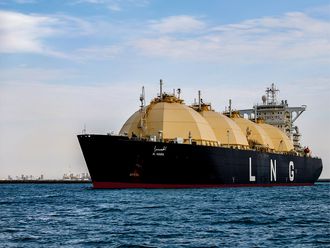Abu Dhabi: Oil prices are expected to fall below $100 per barrel in the second half of 2011, according to a new report by Bank of America Merrill Lynch.
The bank believes that potential fiscal tightening in the US as well as Libyan supplies coming back on line will end the recent rally that has seen Brent crude rise to over $120 a barrel.
"With the first signs of demand destruction on the horizon and credit risks on the rise, we keep our view that Brent will average $94 a barrel in the fourth quarter of 2011. In particular, we believe that the downside risks to oil prices will grow as EM yield curves continue to invert, QE2 comes to an end in the United States, and issues such as debt restructuring in the European periphery start to materialise," the report said.
High debt levels
"The potential drop in crude oil prices could be more pronounced if Libyan supplies happen to come back on line in the second half of 2011 and unexpected US fiscal tightening translates into a much stronger dollar," it added.
The report said oil is being pushed around in a two-tier global economy.
"However, fundamentals have not changed materially, in our view. If anything, the term structure of oil has held up surprisingly well, and near-dated Brent carries a premium over contracts for future delivery. In our view, commodities are still the tug of war of a two-tiered global economy." The report noted that developed markets continue to struggle with high levels of debt and disinflationary pressures, as emerging markets are experiencing fast economic growth and inflation.
"We continue to believe that any commodity demand drop in developed markets will be picked up by emerging markets over the longer term. Still, there is no shortage of downside economic risks in the world, and the emerging market/developed market growth imbalance is likely exacerbating them."
The report said with limited oil supplies and a supportive demand environment in the short-run, Brent crude oil prices should still trade close to an average of $122 a barrel this quarter.
"As we continue to expect higher prices near-term, we view the recent dip in oil as a short-term buying opportunity," the report added.
Commenting on Bank of America Merrill Lynch Global Research report, Dalton Garis, Associate Professor of Economics and Petroleum Market Behaviour at Abu Dhabi's Petroleum Institute said the economy of the United States, the world's largest importer of crude oil, is on the rebound and the global oil prices would continue to stay above $100 a barrel in the foreseeable future.
"Nobody wants to bet against the US economy eventually rebounding, increasing the demand for oil. So the equilibrium price for oil must eventually adjust upwards," Garis told Gulf News.












